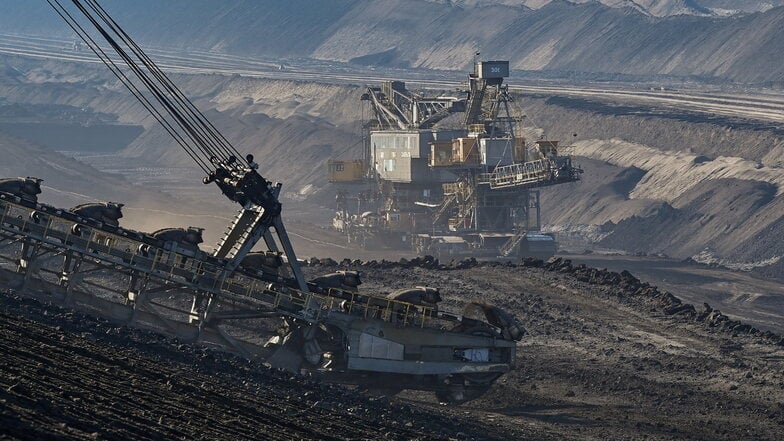From Nora Miethke
According to RWE and EnBW the energy giant Uniper has now also announced that it will no longer produce electricity from coal by 2029 at the latest. All three groups justify their decisions on the grounds that coal-fired power generation will no longer be profitable in five to six years' time in view of rising CO2 prices and higher profit margins for green electricity.
"Regardless of this, Brandenburg's and Saxony's Minister Presidents Woidke and Kretschmer are sticking to the coal phase-out in 2038," criticizes BUND Saxony. The environmentalists fear an insolvency of the coal company LEAG with far-reaching consequences for Lusatia and the state treasury.
"Ultimately, the rising CO2 price will force coal-fired power plants out of the market by 2030. The longer those responsible close their eyes to economic reality, the more likely it is that Leag will become insolvent," Professor Felix Ekardt, Chairman of BUND Saxony, announced on Friday.
An expert report by the research institute Aurora Energy Research confirms the forecast development: "Under the economic framework conditions, we do not expect lignite to be converted into electricity after 2030, as this would be unprofitable." A recent study by BUND Sachsen from Energy Brainpool also shows that the coal phase-out by 2030 would not endanger the energy supply and would even lead to falling electricity prices, it says.
"If the German states do not intervene as soon as possible, EPH will successfully spin off the German coal sector, transfer its profits abroad, and after LEAG goes bankrupt, we taxpayers will then have to foot the bill," argues David Dresen, press spokesman for the anti-coal alliance "Alle Dörfer bleiben" (All Villages Remain), referring to the announcement by Czech investor EPH that it will spin off the coal business of Leag and Mibrag into a newly formed subsidiary called EP Energy Transition.
Greens call for foundation for lignite consequences
As long as Leag is still making high profits due to the crisis-related prices, the federal states should massively increase Leag's financial provisioning obligations so that the taxpayer does not have to pay for the opencast mining follow-up costs in the event of a possible insolvency, Dresen demanded in response to an inquiry from sächsische.de. He considers it urgent to politically recognize the foreseeable market developments and therefore to plan already today with a coal phase-out in 2030. "Only when the respective state governments recognize this can the responsible Federal Ministry of Economics provide the necessary support for the switch to renewable energies by 2030," says Dresen.
Should Leag become insolvent, the responsibility for paying the renaturation & perpetuity costs would pass to the respective federal states. The "Forum ökologisch soziale Marktwirtschaft (FÖS)" had therefore urgently advised as early as 2022 to accelerate the planned payments into the special-purpose entities, to demand additional security deposits and to establish a long-term liability of the parent company EPH to ensure. The Green Party leaders of the eastern German coal states also seem to fear an insolvency of the coal company and called on the federal government a few months ago to set up a foundation from whose funds the post-mining costs would be paid. According to the Greens, the advantage of a foundation lies in the financial separation of long-term task management - such as the reclamation of opencast mining areas - from public budgets and private-sector activity.

The background to this is that there is a risk that the compensation payments negotiated by the federal government with the mining companies, totaling 4.35 billion euros, may not flow in this amount. The state aid investigation is currently underway in Brussels and it looks as though the Commission may not approve the compensation payments in full. Leag is to receive €1.75 billion in compensation. The company plans to invest part of the money in the construction of the so-called gigawatt factory and use it to pay for the follow-up costs of opencast mining.
The laws and contracts governing the coal phase-out stipulate that compensation payments should be paid directly into the special assets of the special-purpose entities set up to implement the recultivation measures. If part of the compensation is not paid, a financing gap will arise that either the federal government or the mining company will have to close. The federal government considers the state mining authorities to be responsible for securing the financing of the post-mining costs.
"We firmly expect that the EU Commission will not approve the compensation payments in full," Dresen emphasizes. A negative Commission decision would thus jeopardize Leag's transformation into a green energy company and increase the risk of insolvency, he warns.








